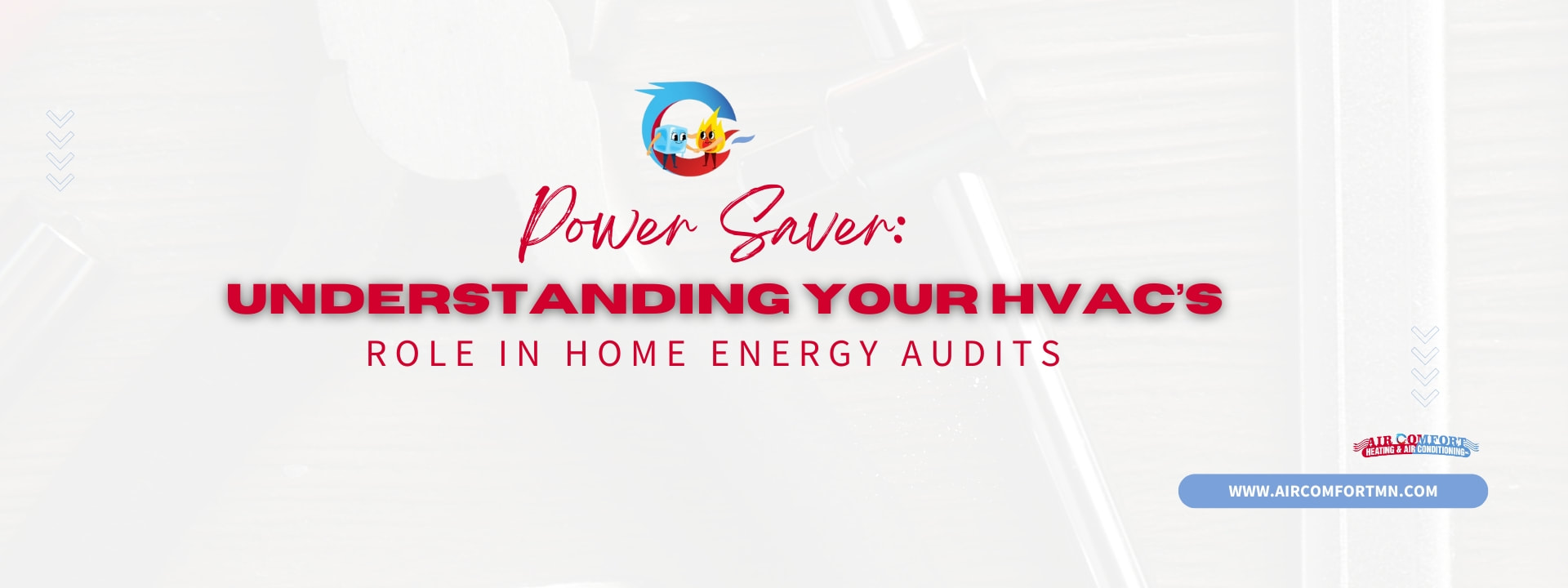|
Home energy audits are essential for identifying where your home may be losing energy and what steps you can take to make your living space more efficient. A key component of these audits is the assessment of your HVAC system, which often accounts for a significant portion of home energy use. This blog explores the pivotal role of your HVAC system in home energy audits and offers guidance on how you can improve its efficiency to save energy and reduce costs.
What is a Home Energy Audit? A home energy audit is a detailed examination of your residence's energy use. The process typically involves a professional auditor who uses specialized tools and techniques to pinpoint areas where your home may be wasting energy. The audit not only assesses the physical structure—like windows, doors, insulation, and ductwork—but also the efficiency of major systems, including heating, cooling, and ventilation. HVAC's Impact on Energy Consumption HVAC systems are among the largest consumers of energy in most households. Whether it’s heating in the winter or cooling in the summer, how well these systems are maintained and operated can drastically influence your home's overall energy efficiency and the costs associated with it. An inefficient HVAC system can lead to significant energy losses, driving up utility bills and increasing your environmental footprint. Key HVAC Checks During an Energy Audit During an energy audit, several aspects of your HVAC system are scrutinized: System Age and Condition: Older systems are generally less efficient than newer models designed with the latest energy-saving technologies. Proper Sizing and Configuration: Systems that are too large or too small for your home can lead to inefficiencies and increased energy consumption. Maintenance and Operation: The auditor checks for proper maintenance histories and operational methods that could affect the system’s efficiency. Ductwork Integrity: Leaky or poorly insulated ducts can drastically reduce system efficiency and distribute air unevenly throughout your home. Improving HVAC Efficiency for Better Audit Results Optimizing your HVAC system’s efficiency before an audit can lead to better results and lower future energy bills: Regular Maintenance: Schedule regular tune-ups to ensure your HVAC system is running at peak efficiency. Upgrade Insulation: Proper insulation reduces the workload on your HVAC system by retaining more heat in winter and keeping out the heat in summer. Seal Leaks: Sealing leaks in ductwork and around windows and doors can prevent energy wastage. Consider Upgrades: If your HVAC system is old and inefficient, consider upgrading to a high-efficiency model that uses less energy to operate. The Benefits of Optimized HVAC Performance An efficient HVAC system, as revealed during a home energy audit, offers numerous benefits: Reduced Energy Bills: Efficient systems use less energy, which directly translates to lower utility costs. Enhanced Home Comfort: Properly maintained and efficiently running HVAC systems provide better temperature and humidity control. Environmental Impact: Lower energy consumption reduces your home’s carbon footprint, contributing to environmental conservation. Your HVAC system plays a crucial role in your home’s overall energy efficiency. Understanding its impact and taking steps to ensure it operates efficiently are key to saving money and improving comfort. Home energy audits provide the insights needed to make these optimizations effectively. Ready to improve your HVAC efficiency or need a professional home energy audit? Contact Air Comfort.
0 Comments
Leave a Reply. |
AuthorVarious. Archives
July 2024
Categories
All
|
CALL NOW: 763-753-6623
Privacy Policy l Cookie Policy l Conditions of Use l Notice and Take Down Policy l Website Accessibility Policy
© 2024 The content on this website is owned by us and our licensors. Do not copy any content (including images) without our consent.
Website managed by Go Savvy Social
Privacy Policy l Cookie Policy l Conditions of Use l Notice and Take Down Policy l Website Accessibility Policy
© 2024 The content on this website is owned by us and our licensors. Do not copy any content (including images) without our consent.
Website managed by Go Savvy Social


 RSS Feed
RSS Feed